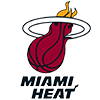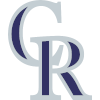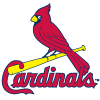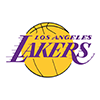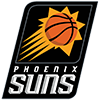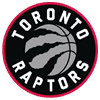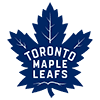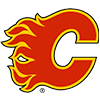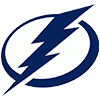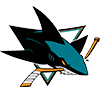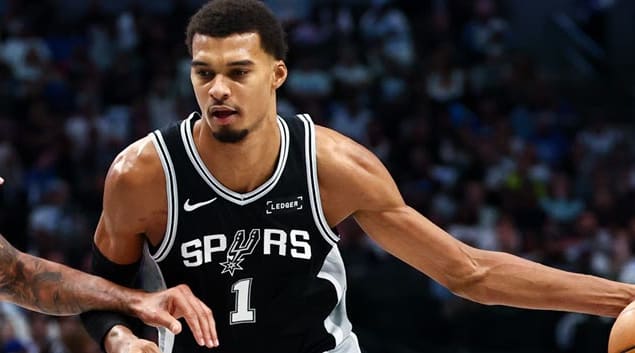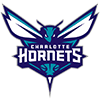 STATE OF THE FRANCHISE
STATE OF THE FRANCHISE
Buzz City is back. In the abbreviated history of professional basketball in Charlotte, this may be the best of times to be a Hornets fan. The franchise has doubled its winning percentage each of the last two seasons, and with the additions of Lance Stephenson, two more first-round picks, and the return (and modification) of one of the most cherished logos in the league's history, the buzz is officially back in Charlotte. With Miami's presumed drop-off, the Hornets are a definite contender with the Wizards for the Southeast Division title, as well a possible top-four seed in the Eastern Conference.
PLAYING TIME DISTRIBUTION
Losing Josh McRoberts may benefit Charlotte in the long run, but it leaves a large question mark in the Hornets rotation for this season. We know two things for sure: Al Jefferson will play a ton of minutes at center (likely in the 33-37 range), and Kemba Walker will do the same at the point (probably closer to 40). Additionally, we know backing those two up, respectively, will be Bismack Biyombo and Brian Roberts, with both featuring around 10-15 minutes per game.
Besides that, coach Steve Clifford has a plethora of options to fill the three spots in between. Lance Stephenson should log about 35 minutes per game because he can — and will — play both wing positions this year. He'll start at shooting guard and also see time at small forward spelling Michael Kidd-Gilchrist while allowing Gerald Henderson time at shooting guard. MKG could approach 30 minutes per game if his offensive game has improved, but don't expect a long leash with so many other options on the roster. Meanwhile, Henderson has started for Charlotte for each of the past four seasons while averaging more than 30 minutes in each of his last three, but that is going to fall back into the 25-28 range (and that's maybe even too high), because the Hornets also figure to work in veteran Gary Neal (21 mpg last year) and first- round pick P.J. Hairston to offer the much-needed floor spacing at shooting guard (something Henderson cannot offer).
The other question mark lingers in McRoberts' absence. Charlotte has three former lottery picks in Cody Zeller, Noah Vonleh, and Marvin Williams to fill that void with each offering something different. Zeller is more of a traditional power forward and will likely spend some additional time at center. Vonleh is the new-age stretch-four and offers the highest reward, but might be too raw this year, while Williams will allow Charlotte to go small and will likewise see some of his time at small forward. Regardless, the Hornets are spending $7 million per year on Williams and spent two valuable draft picks on Zeller and Vonleh. All three are going to play, with Zeller most likely getting the starting nod.
PLAYER OUTLOOKS
Centers
Al Jefferson: After essentially putting up MVP-type numbers over the second half of last season, it's hard to forecast what Al Jefferson can do for an encore in his second season with Charlotte. After the All-Star break, he averaged 24.5 points and 11.2 rebounds while shooting 53 percent from the field to lead Charlotte to its first playoff appearance since 2010. Part of the reason for Jefferson's success was his ability to hit shots from mid-range and in. Jefferson made more field goals from inside of 16 feet than anybody last season, but the Hornets have more offensive weapons than they did last year, and Jefferson turns 30 in January. They'd be wise not to rely on the big man as much (despite his success) in 2014-15. The end is in no way near, but it's more than reasonable to suspect Jefferson's numbers to drop just a little this season. In fact, our projections call for him to drop off roughly three points per game from last season.
Bismack Biyombo: A 2011 lottery pick, Biyombo figured to be a project, and although he had by far his most efficient season last year, it appears to be now or never for the 22-year-old. After starting 106 games over his first two seasons, Biyombo took a backseat last season with Al Jefferson in the fold and averaged a mere 14 minutes per game. Because of that, he posted career lows of 2.9 points and 4.8 rebounds, but his advanced numbers tell a different story. Virtually all of his advanced stats were drastically improved including his true shooting percentage (60.6) and his rebound rate (19.3). Of course, with his limited minutes last season — and more importantly, likely this season as well unless he shows drastic improvements — Biyombo is a weak fantasy option in most leagues.
Forwards
Michael Kidd-Gilchrist: Like Bismack Biyombo, but with more on the line, the former No. 2 overall pick is facing somewhat of a do-or-die year as the Hornets have the capability to exercise his option next offseason. However, depending on who you ask, the second-year forward hasn't completely been a bust. According to ESPN's real plus/minus, Michael Kidd-Gilchrist ranked in a tie for 6th place (+2.06) among small forwards on defense. Believe it or not, that was higher than noted defensive stalwarts Kawhi Leonard, Luol Deng, and LeBron James, but MKG has obviously struggled on offense, some of which was expected because of his completely re-tooled jump shot. According to that same statistic, MKG ranked 39th on offense (-0.77) for a total real plus/minus of 1.29 — 19th among all small forwards. He has the athleticism to make it in this league, and he also shot well at the rim (56 percent) last season, but until he starts making jumpers consistently, he's nothing more than a role player. By all accounts, he's a jump shot away from being one of the better all-around small forwards in the league. Fantasy-wise, he's still a wait-and-see option due to his limited game on offense.
Cody Zeller: It was a tale of two seasons for Cody Zeller last season who was shooting a woeful 38 percent heading into the All-Star break, but his monthly scoring average increased consecutively in February, March, and April on his way to shooting 51 percent in the second half of the season. Because of that — and the departure of Josh McRoberts — Zeller could be considered one of the bigger sleepers in the league. He can play both positions up front and should be starting alongside Jefferson. Do keep in mind Zeller is still just 21 years old and started just three games in his rookie season.
Noah Vonleh: Vonleh fell into Charlotte's lap at No. 9, and although the Hornets have a plethora of options to replace McRoberts' minutes, Vonleh may be as important as any. What Zeller lacks in athleticism and Marvin Williams lacks in size Vonleh appears to have both. Still, Charlotte could fight for a top-four seed in the Eastern Conference, and coach Steve Clifford is expected to ease the youngster into the rotation.
Marvin Williams: One of the quieter offseason pickups, Marvin Williams' role isn't entirely known this year. He's a bit of a tweener, but with Charlotte's never-ending options on the wing, most of his time should be spent up front, especially early on while the Hornets wait on Noah Vonleh. He should play around 20 minutes, but his career numbers have been astonishingly consistent with a field goal percentage lurking around the low 40's. Thus, he'll be in an important role player, but don't expect much impact here.
Jeff Taylor: Taylor is just the odd-man out in a crowded list of wing players. He offers good intangibles and a decent jumper from the corners, but he's an emergency player.
Guards
Kemba Walker: Finally getting some additional offensive help in Lance Stephenson, Kemba Walker could be poised for a breakout season. With a bevy of early draft picks (Cody Zeller, Noah Vonleh, P.J. Hairston) and free-agent acquisitions (Al Jefferson, Lance Stephenson, Marvin Williams) over the last two years, Walker finally has a competent team to play with, and his offensive numbers should continue to rise. Our projections see him averaging around 20 points with six assists and two steals per game. If he's in that ballpark, he'll be a top 10-15 fantasy player. Still just 24 years old, Walker should be just about ready to hit his prime and is more than likely going to have his best year in terms of advanced metrics (expect higher assist rate, true shooting percentage, and arguably a lower turnover rate). What it means for fantasy remains to be seen, but he's as big of a high-end sleeper as you'll probably find.
Lance Stephenson: It's been back-to-back breakout seasons for Lance Stephenson with the end result of which was a big payday and a new hometown. While his trajectory has seemed to plateau, he remains an interesting piece in his first year in Charlotte's offense. Of course, Stephenson excels at utilizing his athleticism and strength to get to the bucket. According to NBA.com/stats, of players that drove to the hoop at least 200 times last year (any touch that starts at least 20 feet away from the hoop and is dribbled within 10 feet of the hoop), only LeBron James, Manu Ginobili, and Kevin Durant shot a higher percentage on drives than Stephenson. That should help a Charlotte team with a slow pace get some more easy buckets, but it was Stephenson's outside shooting that was much improved over the second half of last season — while shooting noticeably worse overall — which could help the Hornets' dire need to space the floor. If he finds more consistency from outside (his monthly splits are all over the map last year), he'll truly be a perfect complement to Al Jefferson and Kemba Walker.
Gerald Henderson: Although Henderon had established himself as a legitimate starter in this league, the Hornets made the free agency splash of signing Lance Stephenson to push Henderson into more of a sixth man role. What that obviously means for the 26-year-old swingman is fewer minutes to some degree. With Stephenson's size, though, it's more than likely the two will spend time on the floor together, allowing Henderson to probably come in around 25 minutes per game. If the need for additional offense calls, though, the perennial sub-45 percent shooter with limited range will probably find himself on the bench.
Gary Neal: Acquired mid-season, Neal was immediately put to use for his outside shooting. In fact, 35 percent of his attempts for the Bobcats were from the three-point line, and that will be his primary role again this year. At some point, logic says he will be pushed aside for P.J. Hairston, who arguably offers a few more dimensions, but that probably won't happen this season. Regardless, he's a 20-minute role player.
P.J. Hairston: Hairston's dynamic outside shot kept him relevant in this past year's draft despite being kicked off of the North Carolina squad mid-year. While that fills a need for Charlotte, it probably won't be until sometime down the road when Hairston is getting enough minutes to warrant regular use in standard fantasy leagues. Barring injuries, Hairston won't see much playing time unless the Hornets need points in a hurry. Lance Stephenson will be the starting shooting guard or small forward, and the team will still have Michael Kidd-Gilchrist and Gerald Henderson as part of their primary rotation on the wing.
Brian Roberts: After doing yeoman's work filling in for Jrue Holiday — but not receiving a qualifying offer from New Orleans — Roberts should seamlessly slide into the backup point guard role in Charlotte. Similar to last season, should Kemba Walker get hurt, Roberts will become a viable point guard option. Until then, he's really not worth keeping around.
Jeremy Pargo: Pargo re-signed with the Hornets in July. He appeared in 29 contests for the Hornets last season, averaging 4.7 points and 1.8 assists in eight minutes per game. The 34-year-old will serve as the team's third point guard, backing up Kemba Walker and Brian Roberts.
SLEEPER
Cody Zeller: There are a few sleeper options for the Hornets, but Zeller is probably the deepest. The fact is, if Zeller can find a level of consistency, he should see 30 minutes per game and put up legitimate fantasy numbers. Since he can play both spots up front, Clifford will probably be more interested in playing him at center, rather than Biyombo, unless there's a vital need for rim protection. Likewise at power forward, Clifford seems to be committed to taking his time with Vonleh, leaving extended minutes for Zeller.
BUST
Al Jefferson: There aren't nearly as many 20-10 players in the league as most fans probably think there are, but Big Al was exactly that last year. Still, he's got a few more options around him this year, and as such, both of those numbers figure to fall just a little bit. No doubt he's a force, but he's not a top-15 pick despite what last year's numbers indicate. On the bottom end, it'd be wise to stay away from Gerald Henderson or P.J. Hairston.








